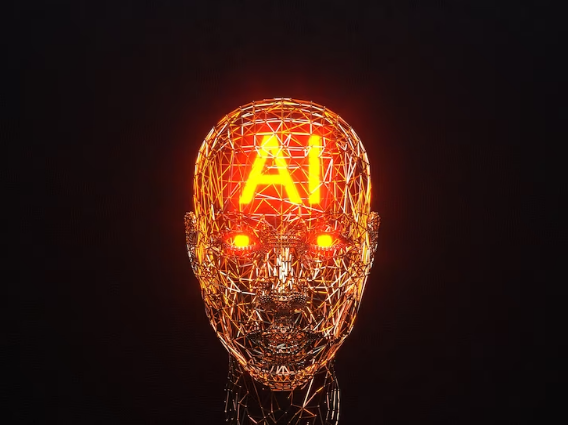Blog categories
Demystifying AI: Understanding Artificial Intelligence and Its Applications

In the fast-paced world of technology, few terms have garnered as much attention as Artificial Intelligence (AI). From science fiction to real-world applications, AI has transitioned from the realm of imagination to a fundamental force shaping our daily lives. But what exactly is AI, and how does it impact our world? In this blog, we'll embark on a journey to demystify AI, exploring its definition, its various forms, and its wide-ranging applications.
Defining Artificial Intelligence
At its core, Artificial Intelligence refers to the development of computer systems that can perform tasks that typically require human intelligence. This encompasses a wide range of abilities, from understanding natural language and recognizing patterns to making decisions based on data analysis.
The Types of AI
1. Narrow AI (Weak AI):
Narrow AI is designed to perform a specific task or set of tasks. It excels in its predefined domain but lacks the ability to generalize its capabilities. Examples include voice assistants like Siri or chatbots.
2. General AI (Strong AI):
General AI, on the other hand, possesses the ability to understand, learn, and apply its intelligence across a wide range of tasks, akin to human intelligence. This level of AI remains largely theoretical and is the subject of ongoing research.
3. Machine Learning:
A subset of AI, machine learning involves the development of algorithms that allow computers to learn from and make decisions based on data. It involves training models on large datasets to recognize patterns and make predictions.
4. Deep Learning:
Deep learning is a specialized form of machine learning that employs neural networks with multiple layers to process information in a way that mimics the human brain's functioning. It is particularly effective in tasks like image and speech recognition.
Applications of Artificial Intelligence
1. Healthcare:
AI is revolutionizing healthcare by enabling more accurate diagnoses, personalized treatment plans, and even drug discovery. Machine learning models can analyze vast amounts of medical data to identify trends and make predictions.
2. Finance:
In the financial sector, AI is used for fraud detection, algorithmic trading, and risk assessment. These applications leverage AI's ability to process large datasets and identify anomalies or patterns indicative of potential issues.
3. Autonomous Vehicles:
The development of self-driving cars relies heavily on AI. These vehicles use sensors and cameras to perceive their environment, and AI algorithms process this data to make real-time driving decisions.
4. Natural Language Processing (NLP):
NLP allows computers to understand, interpret, and generate human language. This technology powers applications like chatbots, language translation services, and sentiment analysis.
5. Image and Speech Recognition:
AI is adept at recognizing patterns in images and sounds. This capability is employed in facial recognition systems, medical imaging diagnostics, and voice- controlled assistants.
6. E-commerce and Marketing:
Retailers utilize AI for personalized product recommendations, dynamic pricing strategies, and customer behavior analysis. This enhances the customer experience and drives sales.
7. Gaming and Entertainment:
AI is used to create intelligent, adaptive opponents in video games. It also plays a role in content recommendation algorithms for platforms like Netflix and Spotify.
Ethical Considerations
As AI continues to advance, it raises important ethical questions. These include concerns about bias in algorithms, data privacy, and the potential for job displacement due to automation. Striking a balance between technological progress and ethical considerations remains a critical challenge.
The Future of AI
The trajectory of AI suggests that it will continue to permeate every aspect of our lives. Advancements in hardware, algorithms, and data collection will likely lead to even more sophisticated applications. However, ensuring that AI is used responsibly and ethically will be paramount.
In conclusion, Artificial Intelligence is not a futuristic
concept but a present reality with far-reaching
implications. By understanding its various forms and
applications, we can navigate this technological landscape
with knowledge and awareness. As AI continues to shape our
world, it is up to us to harness its potential for the
betterment of society.
For more details contact us at
sales@infoscience.co
or whatsapp at
+1 313 462 0002
- Artificial Intelligence
- AI Applications
- Machine Learning
- Deep Learning
- Narrow AI
- General AI
- Healthcare
- Finance
- Autonomous Vehicles
- Natural Language Processing
- Image Recognition
- Speech Recognition
- Ethical Considerations
- Future Trends
- E-commerce AI